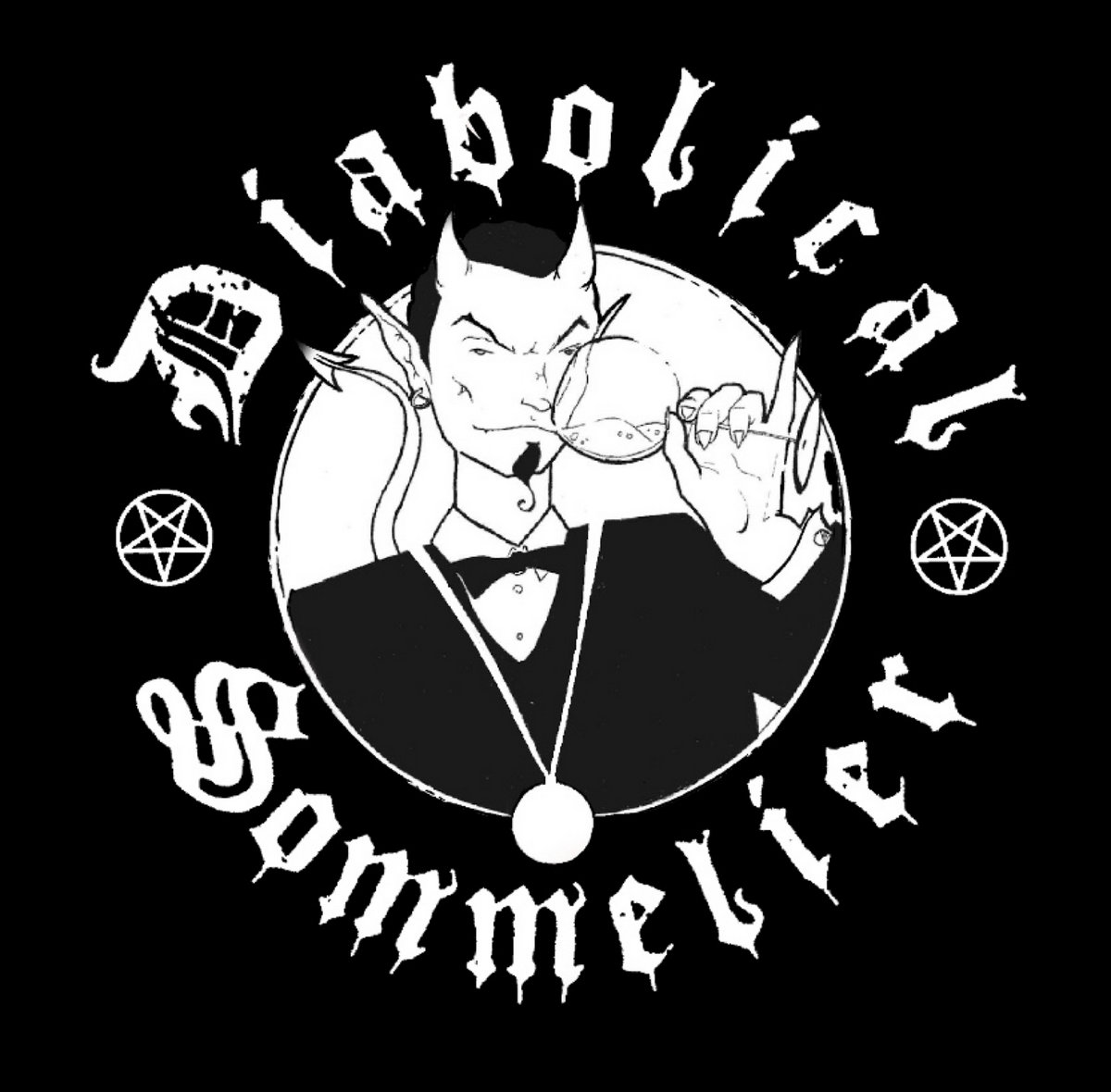Have you ever heard someone describe a plan as "diabolical" and wondered just what they meant? It's a word that carries a lot of weight, so it's almost a bit like a mystery, isn't it? This term, often used to describe something truly bad or incredibly clever in a sneaky way, really does pop up in many places. Understanding its full scope helps us get a better handle on what people are trying to say, you know, when they use it.
Learning about words, especially those with a rich background, can be quite fascinating. The word "diabolical" is one of those that, in English, holds many shades of meaning. It isn't just a simple one-trick pony, so to speak. People use it to talk about things that are very evil, or perhaps something that just seems to have a wicked cleverness to it. It's a word that, quite frankly, gets your attention.
So, what exactly makes something "diabolical"? We'll look at where this word comes from, how people use it in everyday talk, and what you might want to notice when you hear it. You'll also see some real examples, which is that kind of thing that helps make it clear. This word, as a matter of fact, has a history that gives it a good bit of punch.
Table of Contents
- The Roots of Diabolical
- More Than Just Evil: The Many Faces of Diabolical
- How Diabolical is Used in Sentences
- Frequently Asked Questions About Diabolical
- A Powerful Term in Our Language
The Roots of Diabolical
The word "diabolical" has a very strong connection to the Spanish word "diablo," which, as you might guess, means "devil." In many stories and belief systems, you really can't get any more evil than a devil. This means "diabolical" is a very powerful term, often much stronger than just saying something is "bad." It carries a sense of extreme wickedness, a bit like something truly dark. This link to the devil gives the word its intense feeling, you know, its dramatic flair.
This term has been used for a long time to talk about actions or plans that seem very wicked or evil. Often, these things are connected, at least in people's minds, to the devil or to powerful, unseen forces. Over time, "diabolical" has become a common word people use to describe something that is just plain awful, or perhaps deeply malicious. It's a word that, basically, has kept its strong meaning through the years.
More Than Just Evil: The Many Faces of Diabolical
When you look at the word "diabolical," it's not just about one simple definition. There are, as a matter of fact, six meanings listed in the Oxford English Dictionary's entry for this word. This shows that it's a word with a lot of different ways it can be used. We'll break down these meanings, looking at how they show up in everyday language and what to pay attention to.
The Devil Himself and His Traits
One of the core meanings of "diabolical" is that it can describe the devil himself. For example, you might hear someone talk about "my diabolical visitor," meaning a visitor who seems to have the qualities of a devil. This can also apply to anything related to or characteristic of the devil in how it looks or how it acts. It's a very direct link, you see, to the source of extreme evil.
So, when something is described this way, it suggests it has qualities that are truly wicked, perhaps even supernatural in their badness. Think of a character in a story who seems to embody pure malice; they might be called "diabolical." It's about having the very nature of a devil, which, naturally, is a very strong image.
Wicked, Cruel, or Evil Actions
"Diabolical" very generally refers to something that is extremely wicked, cruel, or evil. This is similar to the characteristics people often associate with the devil. For instance, a "diabolical plot" would be a plan that is deeply malicious and meant to cause great harm. It's not just a little bit bad; it's profoundly wrong, so it's a word that really highlights the severity of the action.
This meaning often points to the intentions behind an action. If someone does something truly awful, with no care for others, their actions could be called "diabolical." It's about a level of badness that feels almost beyond human, really. This particular use of the word helps convey a sense of deep moral wrongness.
Cunning and Cleverness: A Sneaky Side
Interestingly, "diabolical" can also suggest cunning or cleverness, especially in a very tricky or deceptive way. Imagine a plan that is so intricate and sneaky that it seems almost impossible to stop. That kind of plan might be called "diabolical" because of its clever design, even if the outcome is bad. It's about a smartness that is used for ill purposes, which is that kind of thing that can be very dangerous.
This aspect of the word points to a certain kind of intelligence that isn't used for good. A "diabolical scheme" might be incredibly well-thought-out, designed to trick or harm others in a very smart way. It's the kind of cleverness that makes you gasp, not in admiration, but because of its wicked brilliance. So, it's not always just about being evil; sometimes, it's about being evil in a very clever way.
Extremely Bad or Annoying: The Informal Use
In some contexts, especially in British English and often in informal talk, "diabolical" can simply mean "extremely bad" or "annoying." It's used as a synonym for "terrible." For example, someone might say, "The weather today is absolutely diabolical!" They don't mean the weather is evil; they just mean it's very, very bad or unpleasant. This is a lighter use of the word, you know, compared to its more serious meanings.
This informal usage shows how words can evolve and take on broader meanings. While it still carries a sense of intensity, it loses the direct link to true evil. It's more of an exclamation, expressing strong frustration or disappointment. So, if your internet connection is really slow, you might, perhaps, call it "diabolical," but you're not actually suggesting it's possessed.
How Diabolical is Used in Sentences
To really get a feel for "diabolical," seeing it in action helps a lot. Here are some examples of how people use this word, showing its different meanings. You'll notice how the context helps you understand which shade of meaning is being used. It's pretty clear, usually, what someone means.
The villain hatched a diabolical plan to steal all the city's water. (Here, it means extremely wicked and clever.)
Her laugh had a truly diabolical sound, chilling everyone in the room. (This suggests characteristics of the devil, a very evil quality.)
The traffic was absolutely diabolical this morning; I was stuck for hours. (This is the informal use, meaning extremely bad or annoying.)
He had a diabolical knack for finding people's weaknesses and using them. (This points to cunning and a sneaky cleverness.)
The old house had a diabolical atmosphere, making visitors feel uneasy. (This implies a quality related to evil, perhaps even supernatural.)
As you can see, the word "diabolical" is a strong adjective. It adds a lot of punch to whatever it describes. Using it correctly can make your writing or speaking much more vivid and impactful. It's a word that, basically, grabs attention.
Frequently Asked Questions About Diabolical
People often have questions about words like "diabolical" because they have so many layers. Here are some common things people wonder about this powerful term.
Is "diabolical" always about evil?
Not always, no. While its main and most powerful meaning is related to evil, wickedness, or the devil, it can also describe something that is extremely bad or annoying in an informal way, as we discussed. So, it's not strictly limited to just pure evil, which is that kind of nuance that makes language interesting. You might hear someone say, "The exam was diabolical," meaning it was very, very difficult, not that it was evil.
What's the difference between "diabolical" and "evil"?
"Evil" is a general term for something morally wrong or bad. "Diabolical," on the other hand, usually implies a more intense, almost supernatural level of evil, often with a hint of cunning or extreme cruelty, so it's a bit more specific. It carries the weight of being devil-like. Think of "evil" as a broad category, and "diabolical" as a very strong, specific type of evil, perhaps with a clever twist. It's a distinction that, naturally, adds depth to your descriptions.
Can "diabolical" be used positively?
No, not really. "Diabolical" nearly always carries a negative meaning. Even when it refers to cunning or cleverness, it's usually in the context of a scheme or action that is harmful or bad. It doesn't describe positive cleverness or skill. So, you wouldn't say "a diabolical chef" to mean a great chef; you'd use words like "brilliant" or "amazing." It's a word that, quite simply, points to something undesirable.
A Powerful Term in Our Language
The word "diabolical" truly is a powerful term in the English language. It allows us to describe things that are not just bad, but profoundly wicked, cruelly clever, or just incredibly annoying. Its roots in the idea of the devil give it a strong, almost chilling impact. When you hear or read "diabolical," you know something serious, and often very negative, is being talked about. It's a word that, basically, makes an impression.
Understanding these different shades of meaning helps us appreciate the richness of our language. It shows how a single word can convey so much, depending on how it's used. So, the next time you come across "diabolical," you'll have a much better sense of what it truly means. You can learn more about word origins on our site, and perhaps explore other fascinating terms by visiting this page. You might also find other interesting word explorations at a good dictionary resource, for instance, a site like Merriam-Webster.
Whether it's a truly evil plot or just a terribly bad day, "diabolical" certainly gets the message across. It's a word that, as a matter of fact, adds a lot of color to our conversations. So, keep an ear out for it!
Detail Author:
- Name : Madisyn Steuber
- Username : cielo.deckow
- Email : dariana.wolff@yahoo.com
- Birthdate : 1992-06-24
- Address : 3985 Fritsch Walks Apt. 836 Harrismouth, MO 36195-1898
- Phone : +1 (304) 608-5520
- Company : Walker Ltd
- Job : Cabinetmaker
- Bio : Est quo voluptas voluptas reprehenderit unde ab omnis aspernatur. Ipsa odit explicabo placeat minima. Quia totam illum ut id. Perferendis maiores ut non voluptates et hic nesciunt placeat.
Socials
instagram:
- url : https://instagram.com/estehr
- username : estehr
- bio : Sunt aut earum in temporibus consequatur placeat. Labore ullam maxime aspernatur provident quos.
- followers : 4491
- following : 2359
linkedin:
- url : https://linkedin.com/in/eliseo_official
- username : eliseo_official
- bio : Modi voluptas numquam voluptatem ipsum.
- followers : 5764
- following : 2312


